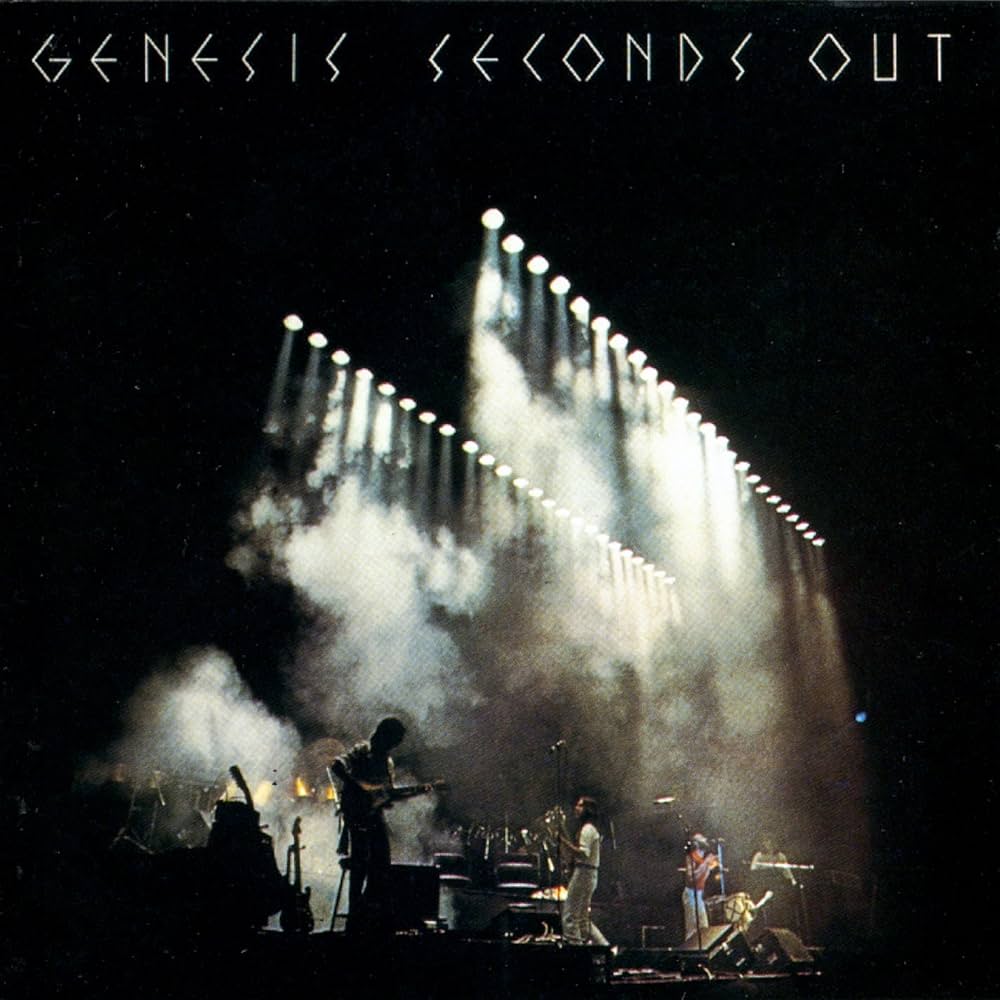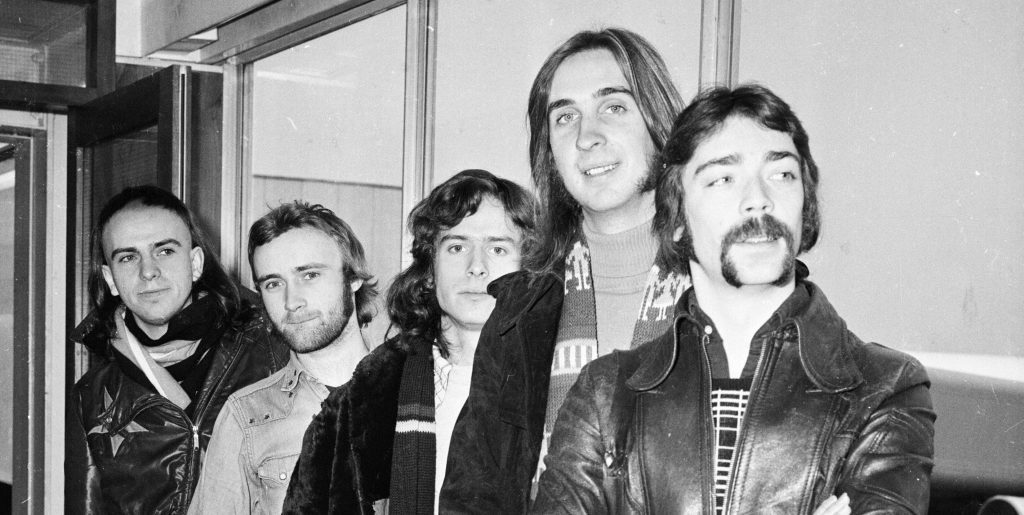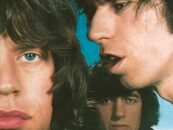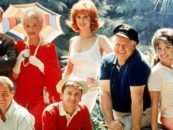 After four studio albums in five years, the British progressive-rock band Genesis issued their first live album in July 1973. The five-track Genesis Live was compiled from recordings made for but never broadcast by the American radio program The King Biscuit Flower Hour. It was originally intended to be a United Kingdom-only release, offered at a bargain price to stimulate sales and fill in the period while the group worked on its next proper disc, eventually titled Selling England By the Pound.
After four studio albums in five years, the British progressive-rock band Genesis issued their first live album in July 1973. The five-track Genesis Live was compiled from recordings made for but never broadcast by the American radio program The King Biscuit Flower Hour. It was originally intended to be a United Kingdom-only release, offered at a bargain price to stimulate sales and fill in the period while the group worked on its next proper disc, eventually titled Selling England By the Pound.
As the band’s bassist Mike Rutherford explained later, referring to their manager, “Tony Stratton-Smith decided to put out the live album, almost while our backs were turned. If he’d asked us for approval outright, we would probably have said no. But it worked, not just bridging a gap, but introducing us to a wider audience. Strat made the right call.”
Still, the rest of the group—drummer Phil Collins, keyboardist Tony Banks, guitarist Steve Hackett and singer Peter Gabriel—weren’t thrilled when the set was released in America just after Selling England By the Pound, their most successful LP to date, hit the racks worldwide. Genesis Live represented about half of their old concert set, and hadn’t been recorded with a great deal of attention to its overall sound.
After the group’s career went up a big notch with the 1974 release of their ambitious, highly theatrical double-LP The Lamb Lies Down on Broadway, and the over 100 live shows on the American and European tour that supported it, Gabriel left the band. Genesis, after some internal drama, eventually recovered by moving Collins to the lead singer role, hiring Bill Bruford as drummer for the tour supporting another hit album, A Trick of the Tail. Its follow-up, Wind & Wuthering, continued the winning streak; Bruford gave way to American Chester Thompson (who’d drummed for Frank Zappa, Weather Report and the Pointer Sisters) for the 1977 Genesis world tour.
Related: Our Album Rewind of Trick of the Tail
The group finally had a chance to produce a high-quality live album reflecting the breadth of its current performances. Released on October 14, 1977 as Seconds Out (a term borrowed from boxing, indicating that coaches and assistants must leave the fight ring before the bout begins), it was a major worldwide hit, top 20 on album sales charts from England to New Zealand. It sold briskly in the United States too, even though it peaked at #47 in Billboard. It’s generally considered one of the best live albums ever released.
The double-disc Seconds Out captures an enthusiastic Genesis in superb sound at the height of their group virtuosity, playing 95 minutes of the best material from six different albums, mainly recorded by the Manor Mobile studio during a four-show June 1977 run in Paris. As Banks says in the notes for a 2009 Genesis boxed set, “There is always a natural energy that comes from performing in front of an audience, which automatically tends to speed things up. That’s the difference between coming to a piece cold in a studio compared to playing live. On stage everything seems fast, exciting. Everyone is in the moment.”
The Rutherford-Banks composition “Squonk” from Trick of the Tail leads off, with Thompson’s muscular drumming connecting the song strongly to Led Zeppelin’s “Kashmir,” which partly inspired it. Reflecting on Seconds Out with Circus magazine’s Jim Farber, Collins explained that the seven months on the road in 1977 improved his vocal qualities: “Before I started as a singer full-time, I used to sing just the softer songs. I think I’m doing better now with the harder tracks. Like ‘Squonk’ was pretty hard. Now my voice has more range. It’s developed a lot since the first tour.”
“The Carpet Crawl” was originally sung by Gabriel on Lamb, but Collins’ restrained and sweet vocal is more than equal to the task of replacing him. Hackett’s spacy, overarching single-note lines, the liquid keyboard parts from Banks, and the careful modulation of musical dynamics makes this live performance mesmerizing.
“Robbery, Assault & Battery,” which Collins sometimes introduced as “a silly song about Harry, a petty thief,” has him acting out the story in a Cockney accent, and adding tambourine during the instrumental passages, with Banks’ ARP Pro Soloist synthesizer in the forefront.
Banks’ heartbreaking “Afterglow,” the only solo writing credit on the album, was composed quickly during the Wind & Wuthering sessions, and according to Banks is “about a reaction to a disaster and the realization of what’s important to you, in a slightly cataclysmic way.” The lyrics find the protagonist recognizing some hard truths: “Like the dust that settles all around me/I must find a new home/The ways and holes that used to give me shelter/Are all as one to me now/But I would search everywhere/Just to hear your call/And walk upon stranger roads than this/In a world I used to know before/I miss you more.” More than one listener has described Collins’ vocal as “angelic.”
The widescreen, nine-minute “Firth of Fifth” has a majestic rhythm at the start, and goes through many changes in tempo and musical coloration, with keyboard flourishes out of Mozart and some especially deft bass lines from Rutherford. This is one of the performances that has Thompson joined by Collins on a second drum set when he’s not singing. (Banks said, “There was always a boost once we introduced the double drumming.”) Hackett’s typically elegant, emotional playing blossoms at the six-minute mark, with a solo he based on a rejected Banks keyboard figure. In fact, “Firth of Fifth” in its original form was rejected when Banks presented it to Genesis for use on the Foxtrot album; it eventually fit into Selling England by the Pound beautifully.
“I Know What I Like (In Your Wardrobe),” another standout from Selling England that was cobbled together from several song fragments, is next, greeted by the audience’s handclapping accompaniment. Everyone’s on a high level for this one, but Rutherford’s inventive bass playing and Thompson’s apt punctuation once again draw special attention.
Next up is a medley, “The Lamb Lies Down on Broadway” with a bridge of the Drifters’ “On Broadway” melding into the powerful concluding section of “The Musical Box.” This shows once again Collins’ mastery of material that originally belonged to Gabriel. Collins’ experience on the London West End stage as a teenager, playing the Artful Dodger in the musical Oliver!, stands him in good stead years later as he leans into his role as front man.
The 25-minute “Supper’s Ready,” originally from the Foxtrot album, had been wowing audiences for years before it was handed off from Gabriel to Collins. In seven parts, this enigmatic tale of good vs. evil unfolds across many changes in mood, instrumental sections in unusual rhythms like 9/8 time, and lyrics that include mysticism and sci-fi horrors: “Wandering in the chaos the battle has left/We climb up the mountain of human flesh/ To a plateau of green grass, and green trees full of life/A young figure sits still by a pool/He’s been stamped “Human Bacon” by some butchery tool/He is you.”
Speaking to writer Chris Roberts about “Supper’s Ready” in 2017, Hackett said, “It was about creating a film for the ear rather than the eye.”
Banks agreed: “Foxtrot was where we started, in my opinion, to become significant.”
The studio version was pieced together over a long period; consequently the live performances have a different flow and tend to sound better, according to Banks. Keeping “Supper’s Ready” in the setlist after Gabriel left was a risk worth taking, and as Seconds Out shows, it was a magnificent gamble. Collins told Farber that Gabriel’s use of costumes, props and his large personality had a downside: “We’re playing the same, but when you’ve got nothing in between you and the people, no distraction [i.e. Peter], then it comes across a lot clearer.”
Taken from a show at the Apollo Glasgow on July 9, 1976, “Cinema Show” is the only track from Bruford’s tenure. The whole band is terrific, but just listening to Bruford is a drum clinic by itself. When Collins joins to double up for much of the performance, it’s astounding. “Cinema Show” was dropped from the setlist for the 1977 tour, but Genesis told their longtime co-producer David Hentschel that it absolutely had to be represented on Seconds Out.
With songwriting credits shared by all four members, two tracks from Trick of the Tail end the set, “Dance On a Volcano” and “Los Endos.” The medley starts with passion, Collins pushing the aggressive lyrics and the band in high gear: “Holy Mother of God/You’ve got to go faster than that to get to the top/Dirty old mountain/All covered in smoke, she can turn you to stone/So you better start doing it right.” At 4:30, Collins joins Thompson on drums and you can hear the audience’s breath taken away. The loud ovation at the end of the 11-minute epic is well-deserved.
In the middle of mixing sessions at Trident Studios in London, during which the band accepted or rejected multiple versions of the same songs, Hackett walked out and never came back. As with most musical breakups, everyone involved has their own story to tell about his departure. Genesis’ life as a trio began with their next studio album…And Then There Were Three…, which saw Rutherford playing guitar and bass. It yielded the hit single “Follow You Follow Me,” and with guitarist Daryl Stuermer added to the touring group, Genesis was set for several more decades of success.
By 2017, Collins, suffering from nerve and spinal conditions that made playing drums impossible, as well as diabetes, enlisted his son Nicholas to play drums for Genesis. After Covid-19 shut down live shows, they returned for The Last Domino? Tour, playing the final date in London on March 26, 2022, announcing their retirement from the road. Hackett’s discography includes numerous solo albums, and his own group has performed Genesis Revisited Live: Seconds Out & More worldwide since 2021.
Genesis’ extensive discography is available in the U.S. here, in Canada here and in the U.K. here.
- Smokey Robinson & the Miracles’ ‘Going to a Go-Go’: Life of the Party - 11/11/2025
- Patti Smith’s ‘Horses’: Poetry In Motion - 11/10/2025
- Rockpile’s ‘Seconds of Pleasure’: One And Done - 11/08/2025






3 Comments so far
Jump into a conversationPlayed this yesterday it still gives me the chills even though I heard it a hundred times.
I’ve always found it interesting that Gabriel left the band just as their albums started selling, then Hackett left the band barely two years later after their albums started selling MORE.
best live album of all time